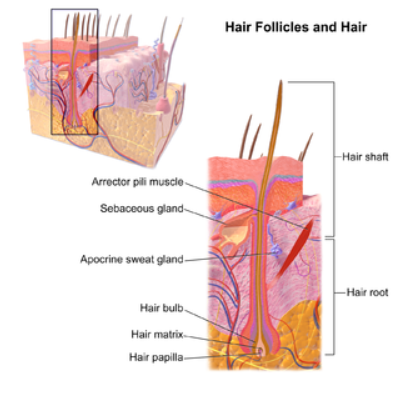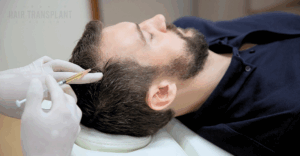
Hair is a significant aspect of one’s appearance, and healthy hair starts with caring for the hair follicles. Hair follicles are tiny sacs in the scalp responsible for producing and nourishing each strand of hair. Understanding the function of hair follicles, common problems and infections related to them, and ways to promote hair follicle regrowth is essential for maintaining healthy hair. This article will explore the various aspects of hair follicle care and provide valuable tips to ensure your hair stays vibrant and strong.
Understanding the Hair Follicle Function
Hair follicles play an important role in hair growth and health. Each hair follicle consists of a root and a shaft. The root resides beneath the scalp and is where the hair is nourished and produced. The hair shaft refers to the part of the hair that is visible above the scalp. The follicles cycle through various stages, including the growth phase (anagen), rest phase (telogen), and shedding phase (exogen). Understanding this natural cycle can help identify any abnormalities or issues that may arise.
Common Hair Follicle Problems and Infections
Hair follicle infection, or folliculitis, can occur when bacteria or fungi enter the follicles, leading to inflammation and irritation. This can result in symptoms like itching, redness, and small pustules around the affected hair follicles. Poor hygiene, excessive sweating, and wearing tight headwear/clothing can contribute to the development of hair follicle infections.
Another common problem associated with hair follicles is clogging due to dead skin cells, dirt, and excess oil accumulation. This can lead to conditions such as dandruff and scalp acne. Proper cleansing and exfoliation of the scalp can help prevent these issues.
Signs of Dead Hair Follicle
A dead hair follicle is no longer capable of producing hair. Some signs of a dead hair follicle include the absence of hair growth, a lack of blood flow to the follicle, and a hardened texture around the follicle. It is vital to note that hair follicles can become dormant and then reactivate, so not all hair follicles that appear dead are permanently non-functional.
Hair Follicle Treatment Options
Several options are available for treating hair follicle problems. Mild cases of folliculitis can often be treated with over-the-counter antibacterial or antifungal creams. In more severe cases, a medical practitioner might recommend oral antibiotics or antifungal medications.
Hair transplantation or hair follicle regrowth treatments may be considered for those experiencing hair loss due to damaged or dead hair follicles. These processes involve transplanting healthy hair follicles from other areas of the scalp or stimulating the regeneration of dormant follicles.
Hair Follicle Surgery: What You Need to Know
In certain cases, hair follicle surgery may be an option for those experiencing significant hair loss or damaged follicles. Hair transplant procedures involve the removal of healthy hair follicles from a designated area of the scalp (donor site) and their transplantation to areas with thinning or no hair (recipient site). This surgical procedure requires careful consideration and consultation with a qualified surgeon. It is important to understand the risks, benefits, and expected outcomes before opting for hair follicle surgery.
How to Care for Your Hair & Hair Follicles
Caring for your hair and hair follicles is essential for maintaining their health and preventing damage. Here are some tips to incorporate into your hair root care routine:
-
Pay Attention to Your Protein Levels
Hair is mostly composed of protein, so ensuring an adequate protein intake through your diet is crucial. Incorporate lean meats, fish, eggs, legumes, and dairy products into your meals. For personalized advice on protein intake, consult a dietitian who can assess your nutritional needs.
-
Manage Your Stress
Stress can contribute to hair loss and disrupt the hair growth cycle. Practice stress management techniques such as regular exercise, a balanced diet, and meditation. Find activities that promote mental well-being and prioritize them in your daily routine.
-
Don’t Skip Out on Sleep
Lack of sleep can have effects on general health, including hair health. Strive to get 7-8 hours of restful sleep each night to enable your body to rest and repair. Establish a consistent sleep schedule to prioritize restful nights.
-
Junk Food? No Thank You
Maintain a healthy diet by avoiding heavily processed foods high in sugar and unhealthy fats. Opt for nutritious foods like fruits, vegetables, whole grains, and lean proteins. These foods provide vital vitamins and minerals for healthy hair and overall well-being.
-
Love Your Scalp
A 2016 study found that a four-minute scalp massage administered every day for 24 weeks resulted in increased hair thickness, suggesting that increased blood flow makes your hair happier. So, book a weekly scalp massage to stimulate your hair follicles, ask your partner, or do it yourself while you’re relaxing and watching television.
-
Don’t be Too Rough on Your Hair
Avoid damaging hair practices such as using hot water, high-heat styling tools, and excessive brushing. Opt for gentle hair care products like shampoos and conditioners, and handle your hair with care to prevent breakage and maintain its health.
-
See Your Stylist Regularly
Schedule regular trims every 4-6 weeks to avoid split ends and maintain overall hair health. Develop a trusting relationship with your stylist or barber who can provide personalized advice and guidance on your hair care.
FAQs
Can hair follicles regrow on their own?
Hair follicles can regrow naturally under certain circumstances, such as temporary hair loss due to stress or nutritional deficiencies. However, for more severe hair loss or damaged follicles, medical interventions or surgical procedures may be necessary.
Are there any natural remedies for hair follicle infections?
Natural remedies like aloe vera, apple cider vinegar, and tea tree oil may aid in alleviating some symptoms of hair follicle infections. However, it’s vital to seek guidance from a healthcare professional for an accurate diagnosis and recommendations on the most appropriate treatment options.
How long does it take for hair follicles to recover after surgery?
The recovery time for hair follicle surgery varies depending on the individual and the extent of the procedure. It may take several months and up to a year for the transplanted hair follicles to fully heal and for new hair growth to become noticeable.
Can hair follicles die permanently?
Hair follicles can die permanently in certain cases, such as severe trauma or scarring. However, with proper care and treatment, it is possible to maintain the health of existing hair follicles and promote regrowth.
Conclusion:
Maintaining Healthy Hair Follicles for Beautiful Hair
Caring for your hair follicles is essential for maintaining healthy, vibrant hair. By understanding the function of hair follicles, recognizing signs of a healthy follicle, and taking preventive measures, you can promote optimal hair growth and prevent hair follicle damage or loss. In cases where hair follicles are severely damaged, advanced treatments like hair follicle surgery can provide effective solutions for regaining a full head of hair. Remember to consult with professionals, follow a proper hair care routine, and prioritize overall scalp health to enjoy beautiful and luscious locks.






